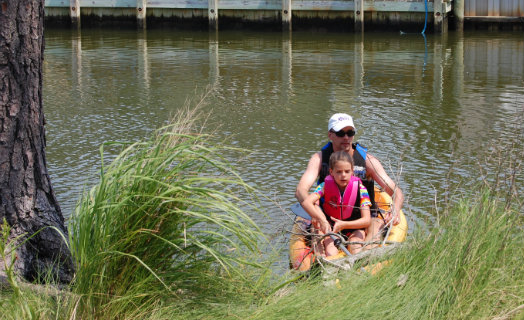
Explicit instruction is a thing that was all the rage when I was in classrooms. As with a lot of things in life, educational strategies have a tendency to circulate in an everything-old-is-new-again type of way. When I was teaching, reading instruction was being reigned in from a whole-language-gone-too-broad phase to a back-to- basics-phonics phase. Incorporated in the teaching was the theory of explicit instruction and I dug into that as a philosophy…HARD.
It just made so much sense to me. Rather than expecting kids to just “catch” what they are supposed to learn, the teacher, using explicit instruction, tells them what they are supposed to learn so they can be on the lookout for it. Give kids all the information you can so that they can learn better. It seems like it’s so logical, right?
Then why don’t we do it with parenting? We expect our kids to just learn stuff like morality and kindness because we model it (hopefully) or we surround them with people who do. And that’s not entirely wrong. Everyone who’s had a kid ask a grandparent “What the he**?” or exclaim “Oh, sh**!” when their preschool paint cup spills, knows all to well that children often “catch” lessons from our modeling. (Like it or not.) Here’s the thing though, they may not catch concepts like honesty, fairness, equality, or consent, no matter how well we live our lives in front of them.
 Kids, heck, very often adults, need explicit instruction in certain areas. It’s never too early to start and it shouldn’t end when they leave for kindergarten. I remember when my older two were very young (preschool age) and had first realized the fun of wrestling with one another. Mostly, they were like bear cubs, and enjoyed every second of the rolling around limbs flying. But, there were times where one or the other would decide it was too much, and quickly shift to a “get off” mode. I was pretty quick to jump in with some explicit instruction in those instances. I explained, (yes, to preschoolers), about personal boundaries and our rights to tell anyone at any time to leave us alone. Then, and this is the explicit part, I explained to both of them that if anyone ever says stop, they must immediately stop. They don’t get to decide if the person means it or not. They don’t get to keep grabbing and rolling even if they were just having fun doing it a second ago. If someone says stop, or don’t, or get off, then the other person has only one choice: to do it.
Kids, heck, very often adults, need explicit instruction in certain areas. It’s never too early to start and it shouldn’t end when they leave for kindergarten. I remember when my older two were very young (preschool age) and had first realized the fun of wrestling with one another. Mostly, they were like bear cubs, and enjoyed every second of the rolling around limbs flying. But, there were times where one or the other would decide it was too much, and quickly shift to a “get off” mode. I was pretty quick to jump in with some explicit instruction in those instances. I explained, (yes, to preschoolers), about personal boundaries and our rights to tell anyone at any time to leave us alone. Then, and this is the explicit part, I explained to both of them that if anyone ever says stop, they must immediately stop. They don’t get to decide if the person means it or not. They don’t get to keep grabbing and rolling even if they were just having fun doing it a second ago. If someone says stop, or don’t, or get off, then the other person has only one choice: to do it.
Clearly, they were too young to learn about sexual consent, but they were not too young to learn about being responsible for yourself and your actions. Nor was it too soon to teach them that they have a right to feel safe and free, always, no matter what.
This instruction has not ended as they’ve gotten older. In fact, in this case it’s gotten even more explicit. I have teenagers, we talk about sex. We talk about human rights around sex. We talk about drinking and drugs and taking care of yourself and your friends if and when drinking and drugs are involved. We talk about mental health and racism and religion.
Our dinner table is equal parts fart jokes and discussions about all the topics you are supposed to avoid at family dinner.
Are these conversations easy? Heck no. Are they natural? Sometimes, but other times they are awkwardly interjected when television or pop-culture provides an opportunity. No matter how uncomfortable they may be, these conversations are a necessary part of raising good humans, which is what The Husband and I have aimed to do since we first laid eyes on that peanut sized shadow picture of The Girl almost 15 years ago.
Is it foolproof? Might they still grow up and make boneheaded or even destructive or dangerous decisions? Absolutely. I’m under no illusion I’m doing it all right. But I am doing all that I can, when I’m not royally screwing it all up, of course.
We all know we’re supposed to teach our kids to walk and talk and poop in a toilet. Sometimes though, we forget it doesn’t end there because they get older and quieter and harder to reach. I know, I fail at it at least once a day. But we owe it to our kids and to the world, to have the tough conversations and teach the lessons that we think they should know to be good humans. And we should do it explicitly, because they just might not catch these lessons, no matter how well we live our lives.
I had someone say to me the other day, after a particularly long discussion about abuse, “What can I do? I feel so powerless.” I’m sure you can guess my answer.
You have all the power in the world to change things by teaching your children to do it better.
P.S. Looking for more parenting guidance and tips for self-care? Check out From Chaos to Calm a guided training to help you feel better in this tough season.





